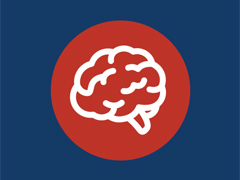Your Goals Vs. Your Mind

We’ve all been there—you decide to eat better and cut down on how many sweets you eat, then you see a dessert that’s calling your name. You know that too much sugar isn’t good for your health, but you want to eat it, so you tell yourself you’ll work out a bit more the next day.
This is called cognitive dissonance and psychologists say our brains do it all the time. It’s when your brain convinces you that you made the right decision, even if you didn’t want to pick it in the first place. Another example of cognitive dissonance is knowing that cigarettes may cause cancer, but smoking anyway because you think it won’t happen to you. During stressful times in your life, your brain may experience cognitive dissonance more often and struggle to make normally easy decisions.
It isn’t all bad, though. If you can recognize it when it happens, cognitive dissonance can be a good opportunity to improve your self-awareness and recognize why you’re struggling to follow through on your goals. There are a few ways you can avoid it, too. Try tracking your progress, making deadlines and rewarding yourself for hitting milestones. Being able to celebrate the progress you’ve made serves as a powerful reminder when you’re faced with a tough choice.
The Online Health Coach rolls this all into one—it’s there to give you motivation when you need it and, if you’re eligible, may also give you rewards for completing your goals. If you need help overcoming the urge to smoke and quitting for good, the Online Health Coach can even help with that as part of our Tobacco Cessation Incentive Program.


